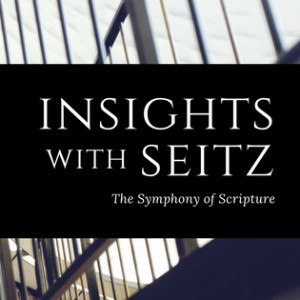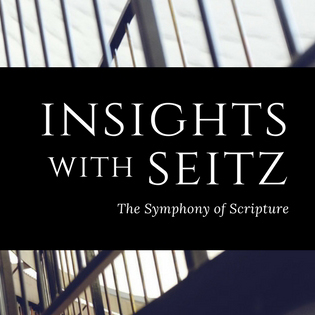Episodes

Wednesday Nov 18, 2020
Seventeenth Sunday after Pentecost, September 19th, 2021
Wednesday Nov 18, 2020
Wednesday Nov 18, 2020
We skip over the Transfiguration (it is read on the last Sunday before the Lenten season starts) and the healing of the epileptic to arrive at the second passion prediction. In all three of these scenes we have misunderstandings by the disciples, to various degrees, from rebuke to arguments concerning rank, each followed by Jesus’ correction. Episodes 2 and 3 are very similar in this regard.
What has brought on this concern for rank, and do the disciples mean now or at a future time? The third scene is clearer than our present one: there James and John speak of Jesus in his coming glory, and wanting to sit alongside him. The Transfiguration may be partly responsible, where Jesus has taken three aside and elevated them above the others. This was the view of the church father Origen, in seeking to understand the Marcan portrayal and its logic. The announcement by Jesus of his pending death may also have triggered anxieties about the disciples’ role more generally into the future, and recourse to arguments about rank may have served to displace their confusion at this juncture in their walk with Jesus. Making the disputes of course no less misguided, and patient of correction by Jesus. Yet one can imagine, if he is to die and he is their leader, what next and who is in charge?
Mark tells us that on this walk through Galilee Jesus is not engaging in his customary healing ministry, but is rather teaching the disciples in a focused way, away from any distractions. So we may well wonder how all this was registering with the disciples. The silence of them before Jesus’ second announcement in Mark’s narrative portrayal may be an improvement on Peter’s rebuke, but we learn that behind it they have been arguing all the same amongst themselves. “Parking lot talk” as it has been called, after a particularly intense meeting where people do not speak their mind but exit full of uncertainty and start unloading.
Jesus announcement is couched in the language of Isaiah 53 and Daniel 7, with its use of “betray” paradidonai – literally, “to hand over” (God’s handing over of the suffering servant; the saints being handed over in Daniel). Here we likely find the reason for the OT selection from Jeremiah, thus broadening our examples from the OT. “It was the Lord who made it known to me, and I knew” – that is, the evil deeds of those who will in time put Jesus to death, into whose hands he is handed over. “Let us cut him off from the face of the earth, so that his name will no longer be remembered.”
But Jeremiah’s name is remembered and his words are recorded for us to see and recall, and for Jesus to see in them a pre-figurement, including the words “you O Lord judge rightly, to you I have committed my cause” – a cause greater than Isaiah’s or Daniel’s or Jeremiah’s because gathering them all up into one final march to Jerusalem to face the powers of darkness and so defeat them. The psalm associated with Jeremiah, psalm 54, ends on notes of victory. “For the arrogant have risen up against me, and the ruthless have sought my life” becoming “you have rescued me from every trouble.” The psalmist knows the way of affliction and death and treason, as does Jeremiah, and he puts his trust in God alone, who brings victory through death and not around it.
Jesus takes a child in his arms, having first placed the child in their midst, having called the twelve to him. The child in their midst. A disturbance, an intrusion, a reality-check in the world of adult posturing, like the children who accompany football players onto the field before the match begins. Let the child be the model, and in welcoming that role and place, one is welcoming me. Death is not to be defeated by top rank but by lowest rank, and welcoming me is a welcome of my way of strength and of assurance. Indeed, God himself is welcomed in this way.
It is striking how well James tracks alongside the Gospel for today. “Draw near to God, and he will draw near to you.” “The wisdom from above”—a phrase used previously by James, from the Father of Lights—”is first pure, then peaceable, gentle, willing to yield, full of mercy and good fruits, without a trace of partiality or hypocrisy.”
Why are there arguments amongst the twelve on the way? Fear of the road ahead, no map with obvious markings, unsure of the leader, and so looking instead at their own motley group and trying to find “the best,” “the top,” “the strong” – yet no longer sure how those words work. James says disputes arise because of deep cravings, wanting something we do not have, and so striking out. Of failing to acknowledge our fear or our need and so failing to ask, to stop and say to Jesus, help my unbelief, help me understand the way you are going, keep me from falling silent and changing the subject to matters of rank and envy, always quick to fill the void.
James’ counsel is direct. Submit yourself to God. Resist the devil and he will flee from you. Draw near to God, take the child whose needs are readily known, and embrace them, and hand them over to him with strength and authority without human ranking.
What a strong and helpful reinforcement James brings, coming alongside our short lesson for today, where a lot has been left unsaid in the vortex of walking behind the cross of Jesus. Sometimes we need a direct command to cut through our arguments and equivocations. James and Jesus are at the ready.
Every child of course has a mother, who is the wife of a husband, the two of them together having created new life. Proverbs final chapter is devoted to the woman of strength. The text is chosen in the logic of Track One, which is to give us something of a survey—piecemeal it must be—of the OT in its own idiom. Three texts from the 31 chapter Book of Proverbs, opening and closing chapters and one from the middle. The woman of valor, looking ahead, will be joined by Esther and Ruth and Hannah, alongside selection from Job – books which belong to the miscellany collection of the Writings in the Hebrew Bible. These will be our Track One readings for Sundays to come.
The 22 verses of chapter 31 chosen for today represent an acrostic, a skillful composition, each verse beginning with the corresponding letter of the 22 letter Hebrew alphabet. The orderly composition imitating the orderly skill of the eshet hayil. The same term is used by Boaz of Ruth in 3:11. The woman of valor, where can one find her? In the book that follows Proverbs in Hebrew listings, courageous, faithful, prepared to take risks, and upon succeeding, taking up as this valiant woman described today. Ruth, who left her own country and gods, and came under the shelter of Israel’s Lord, and in that place gave birth to the grandfather of King David.
“Give her a share in the fruit of her hands and let her works praise her in the city gates.” And so it is. “The women of the neighborhood gave him a name, saying, a son has been born to Naomi, they named him Obed, he was the father of Jesse, the father of David.” For in God’s faithfulness to the woman of valor, the healing spills out to include Naomi herself, and the child born is her fruitful blessing as well as Ruth’s. Her husband too praises her: “Many women have done excellently, but you have surpassed them all.”


No comments yet. Be the first to say something!